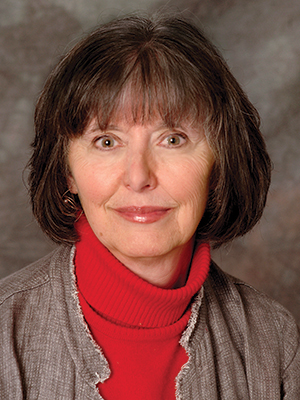
Hester Hill Schnipper Photo courtesy of Beth Israel Deaconess Medical Center
WE ARE ALL FAMILIAR with bucket lists that encourage us to go ahead with experiences that are important and, perhaps, to take some thrilling risks.
But a second and equally important list can be just as useful. A let-it-go list can help us recognize the commonplace annoyances that, in the face of a serious disease, just don’t matter.
As we get better at distinguishing minor stressors from important ones, the list can remind us of where we want to expend our time and energy.
Here are some principles to consider when creating your own list:
1) When you face a problem, assess the long-lasting impact. Will the problem matter in a week’s time? If not, put it in the let-it-go column.
2) Learn to start from “no.” Most of us are socialized to say “yes” to requests, and we may feel burdened and obligated later. Of course, you may want to bake those cookies or go to that event, but think about it before accepting.
3) Dedicate your energy to people and things that make you happy, not on fulfilling other people’s expectations.
4) Forgive yourself and others. And leave regrets behind.
5) Don’t worry so much about routine activities, such as dusting the furniture or vacuuming the carpets. Once you cut back on these mundane tasks, see if you or anyone else cares or even notices.
6) Don’t waste energy on negative people. Find time for people who make you feel better.
7) Many of us have financial constraints, but facing a serious diagnosis can provide a great opportunity to tap into that rainy day fund, perhaps prompting you to go on a trip (See “Have Cancer, Will Travel” in the Fall 2013 issue of Cancer Today) or to enjoy dinner at a restaurant you’ve never tried. As they say, you can’t take it with you—so go ahead and splurge if your finances allow it.
8) Put yourself first some of the time, and always put those you love ahead of others.
9) Remind yourself that many things are out of your control, including the outcomes of scans or treatments. Learn to slow down and take a deep breath in these anxious moments.
I will never say cancer is a blessing, but going through a cancer diagnosis and treatment often forces you to push the pause button on your life. This freeze-frame gives you a rare opportunity to analyze your relationships and priorities through a more powerful lens. Make sure to focus on the people and experiences that matter the most to you.
Cancer Today magazine is free to cancer patients, survivors and caregivers who live in the U.S. Subscribe here to receive four issues per year.




